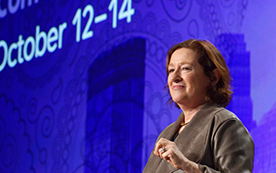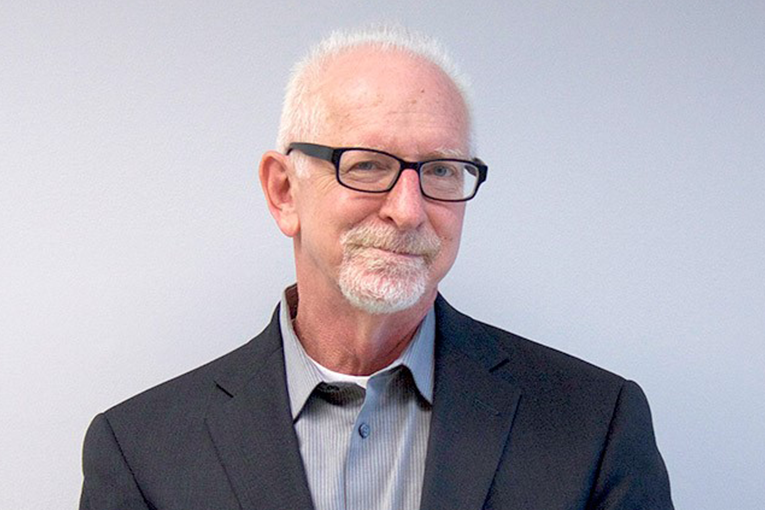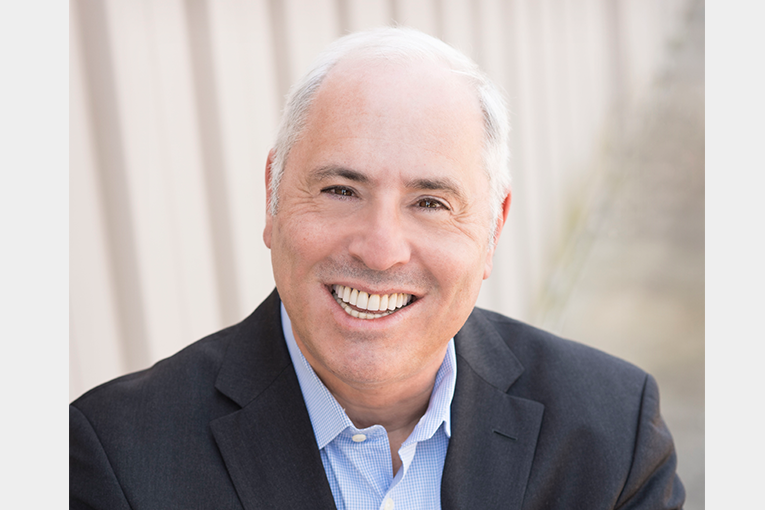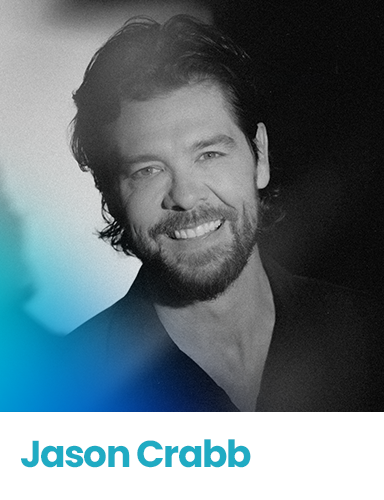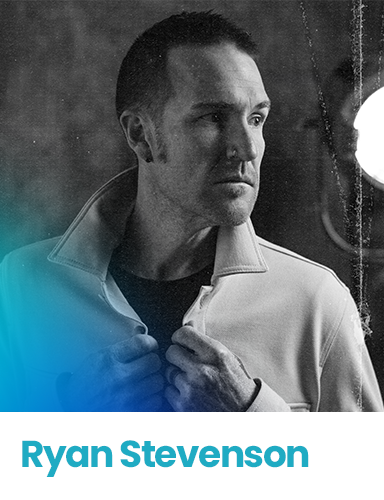
You Don’t Deserve An Audience
I’ve been writing a lot about audiences lately and it’s not an accident. This is blindingly obvious, but audiences are where the attention you are hoping to earn comes from. And if you’re not spending a lot of time thinking and learning about your audience, you’re not going to earn much attention.
One of my favorite thinkers, speakers, and writers about content strategy is Tom Webster of the podcasting strategy firm, Sounds Profitable. He currently specializes in podcasting, but his career has spanned all sorts of media research, and everything he talks about is applicable to non-audio content.

Attention is Earned by Being Remarkable
The reason I wanted to talk with Tom is that his research and personal values are laser-focused on creating audience value with high-quality, differentiated content. His definition of Earning Attention is audience-focused and IMHO, bang on.
“I think earning attention is a trailing variable of doing something really, really good. It either has to be something that you specifically seek out or when you do something so remarkable that you hear about it from multiple people that you trust.”
I love this. “Really, really good” and “remarkable” are high standards, but that is what is necessary to earn attention and get them to tell other people about what you’ve produced. It’s also hard, ongoing work.
“Maintaining attention is a different thing. That’s a daily discipline that never ends. You have to earn your audience every single day.”
Making something remarkable is much easier said than done. Knowing the factors that drive attention and ensuring that you’ve designed for them is vital.
“I think it has to start from some kind of familiar ground, but then it presents something in a novel way or presents something novel. It has to surprise and delight in a way that:
- Challenges the audience
- Comes from genuine expertise
- Is genuinely entertaining
“Two of those three gives a really good bet for earning attention. That’s a very high bar.”
You Need to Make a Show
Tom has talked about the idea of “Making a Show” many times and it’s such a great phrase for conveying the necessity of creating something great and worthy of attention. A Show is different from an unedited, one-take conversation. A show is different from thought leadership. A Show is designed for audiences first.
“A Show has to connect with the receiver on multiple levels. And those levels go all the way back to Aristotle. I taught rhetoric at Penn State for a couple of years. This came from Aristotle himself – there are three different ways something can appeal to you. It can appeal to you from:
- Credibility
- Emotional appeal
- Overwhelming logical appeal
“It’s what the listener expects and wants that really matters. If the listener is looking for expertise on something, then that’s table stakes. But if you could tie that to an emotional appeal, then you have something that’s really, really compelling.
“So many content creators in the nonfiction spoken word space are missing two, and sometimes all three of those things, when they’re out there trying to earn attention.”
All this points to a simple truth – if you’re not invested in making a Show, if you’re not committed to making something differentiated and valuable for your intended audience, all the marketing in the world won’t matter. (See Marketing vs Marketability with Dan Misener for more on this).
Marketing Turds
It is hard to market a turd.
“Recently, a very well-known podcasting publication put up an article on how to grow your audience. And it was tips on posting to social media and getting your SEO right. Do that at the end! That’s putting up your grand opening sign. And it’s got nothing to do with that stuff.
“The worst thing to do is to put up a grand opening sign when there’s crap on the shelves. Because you’re only gonna get those people to show up once. They will never show up a second time.”
You Don’t Deserve an Audience
So why don’t more creators and marketers create Shows? There are two primary barriers that Tom sees.
“In any form of content creation, there are two things you can master:
- The craft of the medium that you’re working in
- The knowledge of your audience
“I guarantee you that most content creators spend little to no time in what is easily half the battle.
“People are going to hate this.
“When you read the feel-good self-help books and the warmed-over advice that you see on Twitter: “Just make the thing you’re passionate about! Show your true voice!”
“That’s great. I want you to do that.
“But you don’t deserve an audience for doing that. That’s a different thing.
“You can put out a show that you’re proud of and that completely reflects your passion for the topic. And it still could be something that an audience doesn’t want because you didn’t take them into consideration. You just did the thing you wanted to do. That’s the advice you’ve been given:
- Don’t listen to the crowd!
- Just follow your heart!
- Damn, the torpedoes!
“Sounds great. You do not deserve an audience for that. You can follow your heart. You can do something that you’re proud of, but you do not deserve an audience. Nobody does.”
Even Less Popular Than ‘You Don’t Deserve An Audience’
If, as Tom predicted, you hate the message “you don’t deserve an audience,” steel yourself. The way to build an audience is even likely to be even less appealing. It’s simple. You have to do the work. You have to lean into making something truly valuable. And too many of us are happy to sign off on “good enough.” Good enough won’t cut it if you want to Earn Attention.
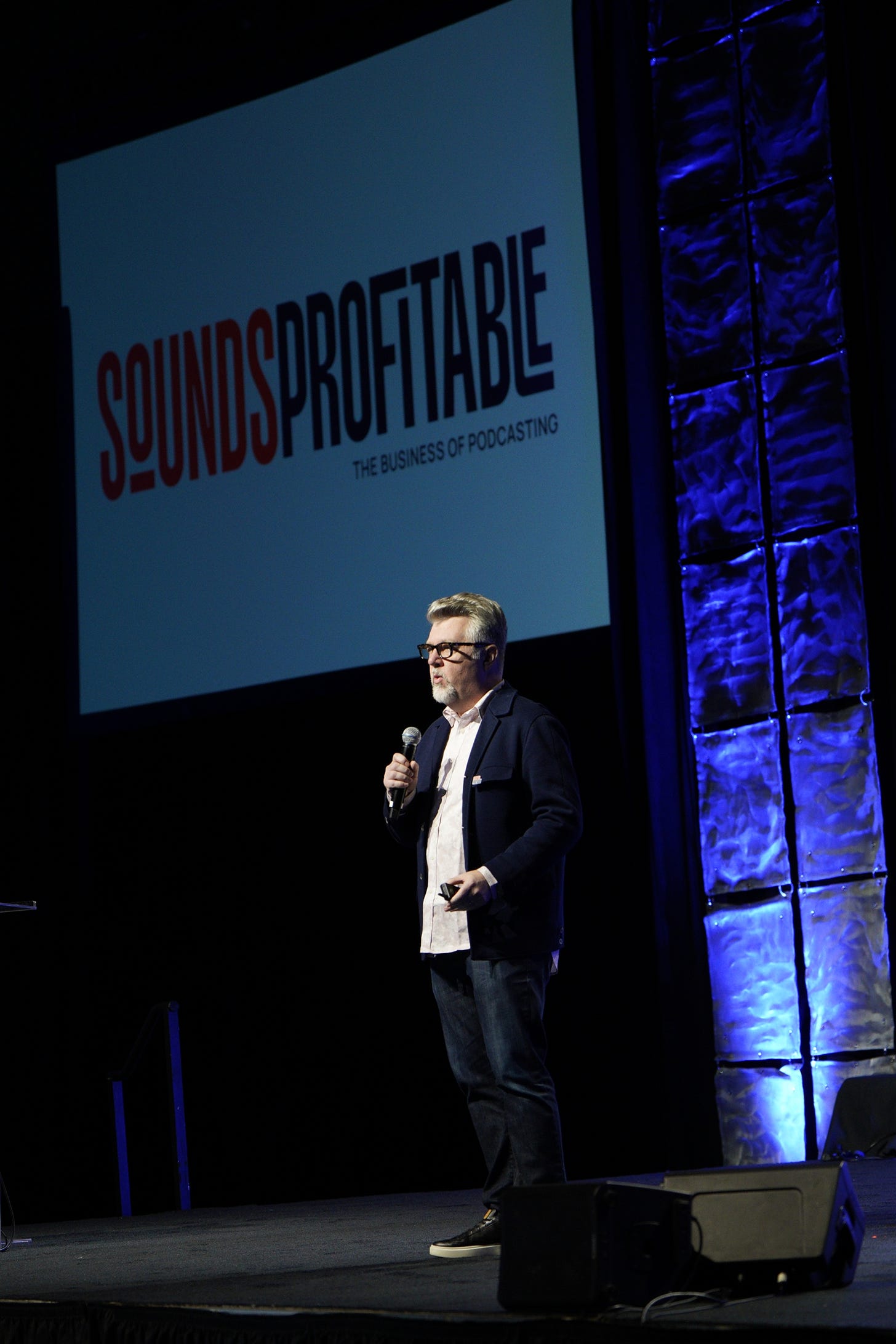
“When I speak about this stuff, someone will often raise their hand in the Q and A and they will say, ‘Tom, no one’s gonna do this stuff. No one’s ever going to do what you’re talking about’. And my answer, which I have honed over decades, is, ‘You are right! Only the very best content producers will do this.’”
In a sea of ‘good enough,’ the few who are willing to Make a Show and make something remarkable are the ones who Earn Attention.
Fewer Things Better
There are a lot of other factors fighting against delivering exceptional quality. In the media, ad-supported businesses are rewarded by making production as efficient as possible and putting out as much content as possible, because more inventory + lower costs/piece of content = more revenue and higher margins.
For brands, there might be a fixed marketing budget for a content project and the inclination is often to produce as many pieces of content as possible in order to get the most bang for your buck.
I have long been a proponent of fewer things better as a content strategy, precisely because of the high bar to Earn Attention. Mediocrity will not Earn Attention. And as Tom says, you don’t deserve an audience.
“To me, it’s just one dimension. It’s just quality. Nobody consumes anything in any quantity that is not of quality.
“There’s a quote I love by JJ Watt, the NFL football player. He’s legendary for his preparation and how much work he puts in. Somebody asked him, ‘You’re at the top of your game. You’re All Pro. You’re the defensive player of the year. So why do you need to work this insanely hard? Is this really all necessary?’
“And JJ Watt says, ‘The person that I’m going to be playing against is not working this hard. And when we get on the field, he’s going to be found wanting and he’s going to know it, and I am going to know it.’
“If you ask a marketer who has created a piece of content:
- Would you read this yourself?
- Would you sit down on a Thursday night and watch this?
- Would you tell other people about this?
The answer’s probably no.”
These are almost verbatim the questions I ask clients when creating content strategy. If you work at a brand, adding the phrase “If you didn’t work here” to the front of each question is even more powerful. “If you didn’t work here, would you tell other people about this?”
As a producer, these questions force you into the audience’s mindset. They force you to confront whether or not you are Making a Show.
“Marketers in content, when they’re trying to be media producers, often get a sense that it’s good enough. Good enough means you could have done better and you know it.”
The Short Attention Span Myth Debunked

I frequently talk with clients about making the choice between ‘making things people like’ versus ‘making things people love.’ If you make something that’s going to blow people’s minds and that they’re really going to love, it’s a lot more powerful than making a thing that people kind of like.
With the enormous amount of crap and click-bait out there to sift through. the bar is very, very high. When you have infinite choices, it’s illogical to choose something that you only like.
“I agree a thousand percent with that. The biggest myth to content creators is that people have short attention spans. That’s simply not true.
“When a really great show drops on Netflix, we binge it. We will sit and watch three in a row of something we really, really love.
“It’s not that we have short attention spans, it’s that we have better filters. We have better ways to exclude crap.
“Six years ago now, we did a study called the Commuter Code. And it was a piece of research where we mounted cameras in the cars of commuters. And we watched the videos back and coded every time they did something to their entertainment system. Some people had a five-button AM/FM radio. Some people had Teslas. Some people had a phone plugged in it. All kinds of ways that people have entertainment.
“And what we saw was that the more tech that you had in your car, the more digital options you had available, the less you switched. What? They have millions of choices. Wouldn’t they switch more? No. Because they’re getting exactly what they want. They’ve made a choice.
“Again, we don’t have short attention spans, we just have better filters. We have better ways to find exactly what we want.”
Fun Matters
I wanted to end the barrage of hard truths on a positive note. Yes, it is true that you don’t deserve an audience. Yes, it is true that you need to be remarkable and make a show and do fewer things better. And yes, it is true that doing those things is very hard work.
However, there are two big, positive upsides to Making a Show. First, it’s rewarding.
It’s rewarding because you’re making something that has an impact on other people. You are treating their time and attention as the incredibly valuable resource it is and earning it by being remarkable.
Second, Making a Show is FUN! In most successful Shows, there is an entertainment factor embedded in the DNA. You can download an enormous amount of information efficiently in your white paper, blog post, or podcast… and it could still be mind-numbingly boring.
You need to tell stories. You need to be creative. You need to create a format that is differentiated from your competition. And depending on the format, YOU need to have fun while you’re making the show, because the Fun Factor is tangible and transferrable for audiences.
Audiences like fun.
So be like Tom. Make a Show. Lean into the hard work. Make fewer things but make them remarkable. And have fun.
THEN you can put up your Grand Opening sign 🙂
Takeaways
- Are you challenging your audience, sharing expertise, or entertaining them?
- Have you layered credibility, emotional appeal, and logical appeal into your content?
- Would you consume the content you’re making if you weren’t the one making it, or if you didn’t work at the company producing it?
- Is it content you or your company want to make, or has it been designed specifically for your intended audience?
- Are you making A Show? Is it remarkably great? Does your audience LOVE it?

